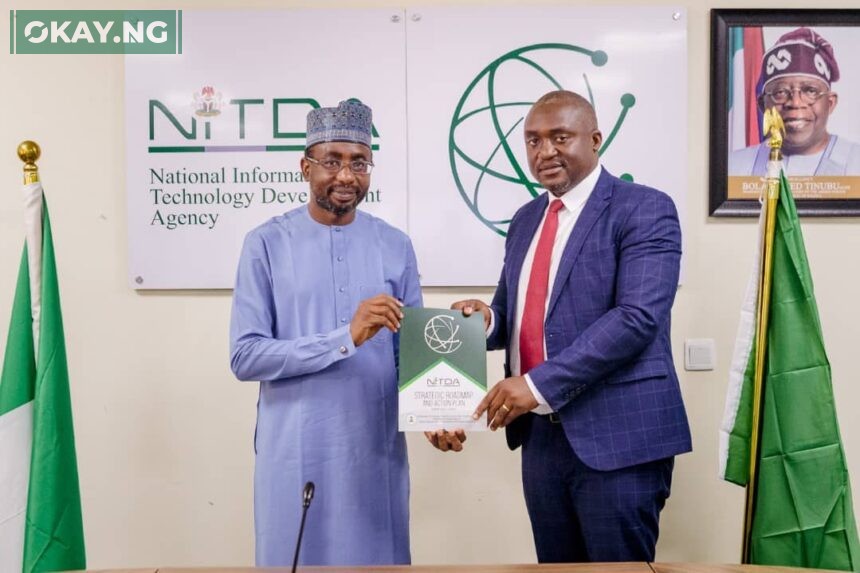A high-level delegation from the Zambian digital economy sector has arrived in Nigeria with the primary objective of studying Nigeria’s National Public Key Infrastructure (NPKI).
Led by a director from the Zambia Information and Communication Technology Authority, Mr. Austin Sichinga, the delegation expressed deep interest in Nigeria’s model, considering it the most adoptable and adaptable among African countries.
The Zambian delegation is keen on engaging and learning from Nigeria’s successful implementation of NPKI, as they believe it holds significant potential for their country.
Mr. Sichinga emphasized the importance of the project by highlighting the diversity of their team and the portfolios they brought along.
Their intention is to implement a similar infrastructure for secure transactions and enhance interactions with partners across borders.
Addressing the visit, Mr. Kashifu Inuwa, the Director General of the National Information Technology Development Agency (NITDA), commended the Zambian government for taking the initiative to study Nigeria’s NPKI.
He stressed the need for African countries to work together and develop a unified digital strategy, emphasizing that digital transformation transcends geographical boundaries.
Mr. Inuwa further explained that NITDA has developed a comprehensive Strategic Roadmap and Action Plan (SRAP) for the years 2021 to 2024, with NPKI falling under the Developmental Regulation pillar.
He highlighted that NITDA’s role as a regulator is to enable innovation rather than hinder it through excessive regulation.
The agency is in the process of developing regulations for PKI, leveraging its authority under the law that established NITDA.
However, NITDA will not involve itself in the operational aspects of PKI, focusing instead on providing the Certificate Authority (CA) route and sector-specific CAs for different industries.
The Director General stressed the need to commercialize services such as digital trust to build confidence in e-commerce platforms.
He acknowledged the challenge faced by Nigerian websites in gaining trust from Western countries due to a lack of certification. The implementation of PKI is crucial in certifying these websites and establishing public trust.
Mr. Inuwa revealed that NITDA has received visits from Ghana, Gambia, and Kenya in the past, demonstrating international recognition for the agency’s accomplishments.
Encouraged by this, NITDA is currently developing a playbook that will be shared with other African countries to promote a robust digital economy across the continent.
In his advice to the Zambian delegation, the Director General urged them to focus on initiatives that would foster digital independence for Zambia.
He emphasized the importance of building the capacity of citizens in order to drive the country’s digital transformation.
Dr. Usman Abdullahi Gambo, NITDA’s Director of Information Technology Infrastructure Solution, provided an overview of the agency’s mandates, highlighting their role in development, regulation, and advisory services in the field of information technology.
During the visit, the Zambian delegation had the opportunity to gain insights from NITDA’s Cyber Security Department, which manages the NPKI.
The department presented detailed information on the benefits, architecture, policy, implementation strategy, types of certificates, and stakeholders involved in Nigeria’s NPKI.
The visit concluded with a tour of NITDA’s facilities.












